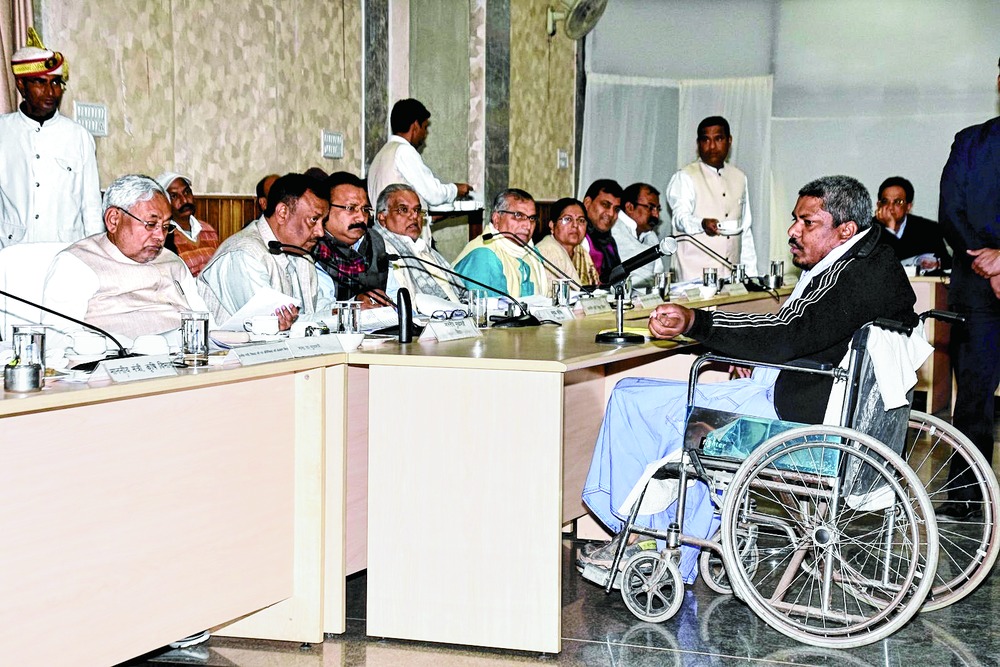
Patna, Dec. 19: A doctor's mistake leads to the death of a patient, but a teacher's mistake leads to the death of the entire society.
Ali Akhtar Ansari, an assistant teacher with a government school in Araria, travelled 350km to Patna with this message for chief minister Nitish Kumar at his Lok Samvad (discourse with public) today.
Ansari said how teachers in schools come late, don't take interest in taking classes, and at times they are not present for months yet get paid.
"All this reeks of bribery. You have the capability to stop it. Punctuality of teachers should be insisted upon, as it affects the entire society," Ansari said, adding how the graduate course session of his nephew studying at DAV College in Siwan that comes under Jai Prakash University was running two-and-a-half years late.
The Lok Samvad saw the unravelling of the education scenario in Bihar, as a flurry of complaints on absenteeism of teachers and students, problems faced by them, suggestions to improve the situation came from different corners of the state. Lack of books in government schools also figured in it.
Deputy chief minister Tejashwi Yadav, education minister Ashok Choudhary, chief secretary Anjani Kumar Singh and several others were present on the occasion.
Suggestions were sought on 14 departments, but a majority was related to education.
Nitish gave directions after listening to some of the suggestions, took note of a few and directed some others to the officials concerned.
Teacher Rakesh Kumar complained on how teachers have been appointed in schools in their own villages or panchayats, which resulted in men tutors indulging in politics and women teachers staying at home, leading to decline in the quality of education.
The state government, while recruiting teachers, gave the right to appoint primary teachers to the panchayats and the urban local bodies.
"We had noticed that teachers recruited by the government did not teach. So, our idea was that a teacher would be under pressure to teach if he/she was appointed in his/her village or area. However, this situation (teachers not teaching) has emerged only after the state granted pay-scale to the teachers," Nitish said.
"Around 12.5 per cent children were out of school in 2006 when we came to power. We constructed schools, teachers were recruited and this percentage is now 0.9 per cent. Now, we are moving to the next stage and focusing on the quality of education," Nitish said.
He added that the "quality of education" was discussed even in the US, where people were worried about standards up to the graduate level. "Forming the habit of going to school is also a part of education. But it's not everything and we have to pay attention on its quality too," he added.










